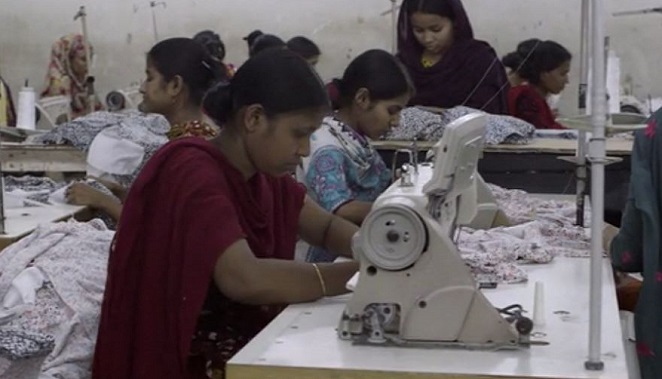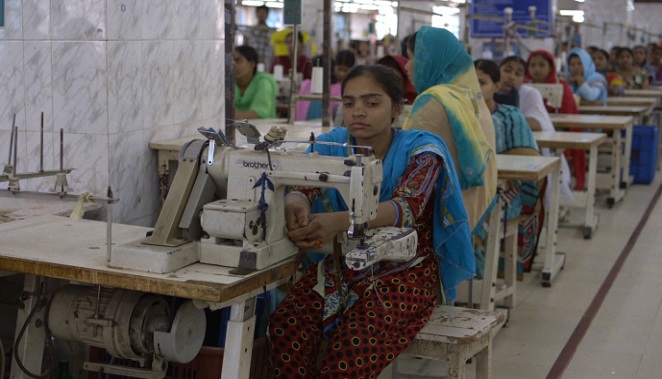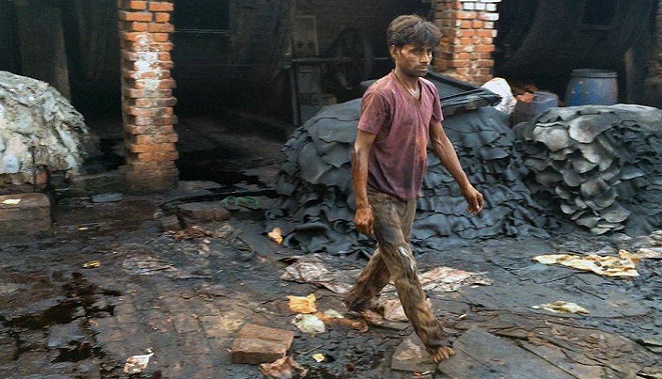
The True Cost - A Fashion Documentary
2nd June 2015
Ethical Living | 0 Comments
Back
“The True Cost is a documentary film about the effects of the clothing industry on people & the planet.”
It’s a pivotal time in the fashion industry. Within one generation we have grandparents who grew up ‘making do and mend’, parents accustomed to disposable income and children with ‘more’ in their genes. Of course this is an exaggerated picture but the point is that fashion reflects the times within which we live. Fast Fashion has become part of our culture, exposed for all it stood for in the recent recession. And what effect did the recession have on fast fashion - the industry kept cutting margin so we could carry on spending. Where did margin come from - not from the retailers but from those who could afford it least. The garment workers.
Consumerism comes at a high cost and The True Cost gives a panoramic view of the fashion industry; from genetically modified crops to working conditions to land fill from our over flowing wardrobes.
The promise of globalization promised riches for all. Consumers in the wealthier world would get what they wanted and workers in the poorer parts of the world would get jobs. But the problem was that competition amongst suppliers became so competitive that margins were slashed and slashed. Not the retailers margins but way down the line at point of manufacture. For example Shima, a garment worker featured in the film started work at 18 on $10 a week and now at age 23 earns $3.
The fundamental problem is that fashion is one of the most labour intensive industries in the world with 97% outsourced to developing countries. Countries so distant to the finished garments that it needs films like this to tell the stories behind the labels.

The True Cost also covers the enormous health costs to workers involved in working with genetically modified crops and the subsequent dying processes. Clothing is the second most polluting industry after oil. It’s estimated that every 30 minutes a worker dies from direct or residual toxins left behind in the soil and water. This cost to the environment and workers is not accounted for in your product costs.

Livia Firth refers to Landfill as the dirty shadow of the fashion industry. We believe we're doing the right thing by sending old clothes to charity but actually only 10% of recycled clothing ends up in charity shops. The remainder goes to landfill or countries such as Haiti which in turn is destroying local industry.

I’m reluctant to call the film an expose, as much of it we’re already aware of but what’s interesting is that Andrew Morgan, the producer, had no previous experience of the fashion industry. Andrew set out to find out more and I suspect for those with a similar level of awareness his shock may reflect your own.
"I don't want anyone to walk away from this film and think less of fashion," Morgan explained at a screening of the film last week. "I don't want to feel guilty if I love the things that I love to wear. What I'm trying to get through is: let's all take a step back from this incessant process of consuming mediocre stuff. And let's go back to a place where we invest in pieces of clothing that we love, that we're going to wear, that we're going to hold on to."
Please watch The True Cost. It may make you look again when you think you have nothing to wear.
You can download the trailer and film from the True Cost website.
Images from The True Cost stills.




Comments
To comment you have to have an account with us:
Login / JoinBe the first to comment
It would be great to hear your views, be the first to comment.